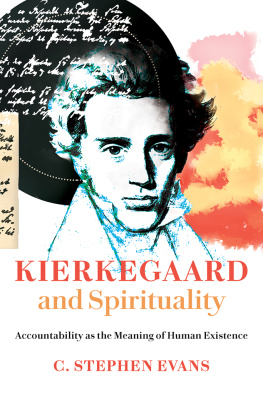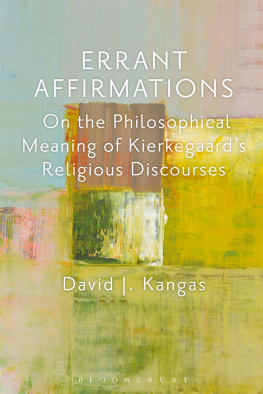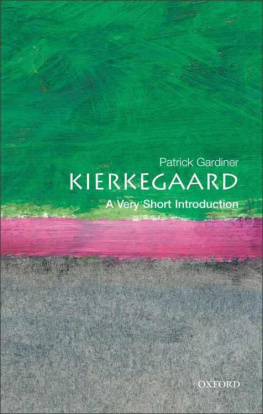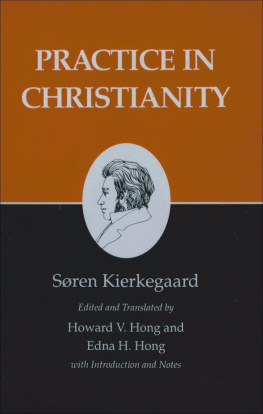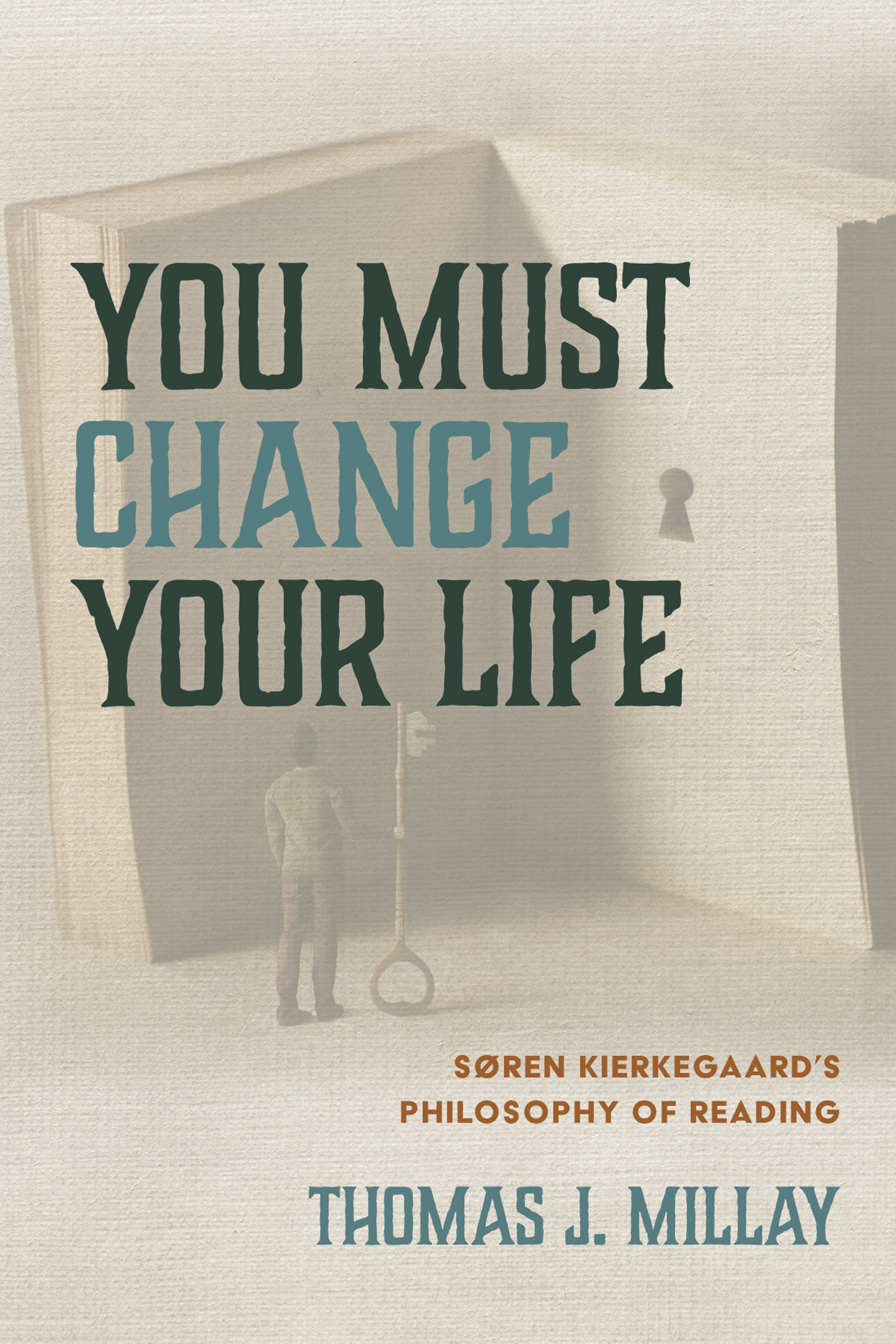Rarely do we pause and consider how we ought to read. With laser focus on this question Thomas Millay makes the paradoxically compelling case that reflection on this question ought to move us away from reflection toward action, specifically the works of neighbor love. How one reads matters, then, since the very transformation of our hearts, minds, and wills is at stake.
Mark A. Tietjen
Author of Kierkegaard, Communication, and Virtue:
Authorship as Edification
In recent decades, research has shown that literary reading is in a slow but certain decline in Western societya trend that has been hastened by the arrival of the smartphone. Why bother to read, one might assume, when there is now an abundance of other engaging options, from Facebook to Netflix? One of the best things about Millays book is that it speaks to this concern, arguing, in particular, that Sren Kierkegaards thought offers a nuanced apology for the task of reading. Intriguingly, it turns out, Kierkegaard believes that reading, as a quiet and reflective activity, is essential training for the individual to learn how to act well in the world. Thus, Millays book does a great service: it gives us timely wisdom from a thinker whose understanding of modernity is looking increasingly prescient.
Christopher B. Barnett
Villanova University
Reading is on its way back and there is a growing literature relating to what it means to read well. Thomas J. Millays new book shows that Kierkegaard can make an important contribution to the discussion, as well as reminding us that reading is not an end in itself but is to help us change our lives.
George Pattison
University of Glasgow
Thomas Millays volume performs an astonishing feat: it both edifies the general reader and stretches the Kierkegaard specialist. Its main contention could not be more culturally relevant. In this era of the intensified reading of tweets and posts, it reminds us that the ultimate purpose of reading should not be escapism or the accumulation of data, but rather the transformation of the self, which is nothing less than growth in love for God and neighbor.
Lee C. Barrett
Lancaster Theological Seminary
Reading well was once regarded as the first step one takes in a process that leads to the contemplation of God. Augustine and Kierkegaard knew that, each in his own way. Thomas J. Millay judiciously and clearly points us back to them while letting us see the limits of their visions. We can only benefit by reading this elegant book.
Kevin Hart
University of Virginia
You Must Change Your Life
Sren Kierkegaards Philosophy of Reading
Thomas J. Millay
Preface
T his book serves two fundamental purposes.
First, I hope to give those who are at a point in their lives where they are about to embark on a period of more intensive reading some idea of why such an activity might be valuable. If it is the summer after your senior year of high school and you are about to begin college, this book is for youthough it can also serve those who are just entering graduate school or those who have been reading intensively for a long time but have forgotten why they are doing so.
I aim to achieve this first goal by developing a philosophy of reading: that is to say, an account of what reading is for, and how we should do it. Surprisingly, given that this activity is what many academics spend most of their lives doing, there have been fairly few books published on this subject. Those that are published tend to be theological in nature. For example, I have found Alan Jacobss A Theology of Reading and Paul J. Griffithss Religious Reading to be helpful resources. But most books published on the subject of reading are either: (a) arguments for why you should read a particular canon of texts (Karen Swallow Priors recent book On Reading Well falls into this category), or (b) methods of interpretation, which give you different ways to read a text. But neither of these more popular topics address the deeper question at stake: why should we even read at all? It is this question that a philosophy of reading tries to answer.
Second, this bookif successfulwill provide the first extended and comprehensive treatment of Kierkegaards philosophy of reading. Thus far, this has been a neglected topic in Kierkegaard studies. but such a topic has to do with how and why one writes and speaks, not how and why one reads. With this in mind, I hope what follows goes some way towards filling in this gap in scholarship.
These two objectives have two different audiences. For the general reader, I hope to provide a useful philosophy of reading that adds depth of purpose to this practice. For the Kierkegaard specialist, I hope to provide a thorough treatment of a neglected topic and in this way advance our highly peculiar discipline.
The book unfolds as follows. The first chapter introduces the rest of the book by succinctly answering three questions: Who was Kierkegaard? What did he write? What did he read? The second chapter then lays out Kierkegaards philosophy of reading in general terms, defining the purpose of this activity in Kierkegaards understanding. In the course of this chapter, I also briefly look at St. Augustines theory of reading as a historical resource, demonstrating that Kierkegaards philosophy of reading is not spontaneously generated but has deep ties to Western Christian tradition. Comparing Kierkegaard and Augustine, I show that there are broad similarities between the two; however, Kierkegaard expands the scope of an upbuilding theory of reading in ways that I argue are potentially fruitful for contemporary readers.
The next two chapters ( and ) focus on specific thematic accents within Kierkegaards general philosophy of reading, namely his emphases on conceptual clarity and appropriation. These themes are defined and developed especially with reference to the prefaces of a select group of Kierkegaards texts, including Works of Love and Upbuilding Discourses in Various Spirits . After definition of the theme in question, I highlight the reading methods Kierkegaard recommends for developing conceptual clarity and appropriation, moving from what these Kierkegaardian concerns are to how we might implement them.
Chapter , Dont Read, Act!, constitutes the surprising conclusion to Kierkegaards philosophy of reading. Ultimately, Kierkegaard wants us to stop reading and leap into action. Although reading can clarify for us what actions are the right ones to take, this clarity is of no use if it is not translated into the risks of activity. Paradoxically, then, Kierkegaards philosophy of reading ends with a call to stop reading. As we will see, however, the contradiction apparent in this paradox is only superficial: for Kierkegaard, reading is always in service to something else. Thus it is entirely appropriate that if reading begins to get in the way of this something else, it should be discarded.
In conclusion, I dispel the possible illusion that I consider Kierkegaards philosophy of reading to be completely sufficient by considering what I hold to be its chief flaw, and I offer a counter to this flaw by drawing on a selected passage from the influential Orthodox theologian St. Gregory of Nazianzus ( AD). Just because Kierkegaards philosophy of reading has flaws does not mean we have nothing to learn from it, however. Over the course of the next few chapters, I hope to show that we stand in Kierkegaards debt: there is an abundance of wisdom still to discover in the melancholy Dane, including the significant gift he gives us of increasing our understanding of why we in fact should do this activity which many of us spend so much time doing.


